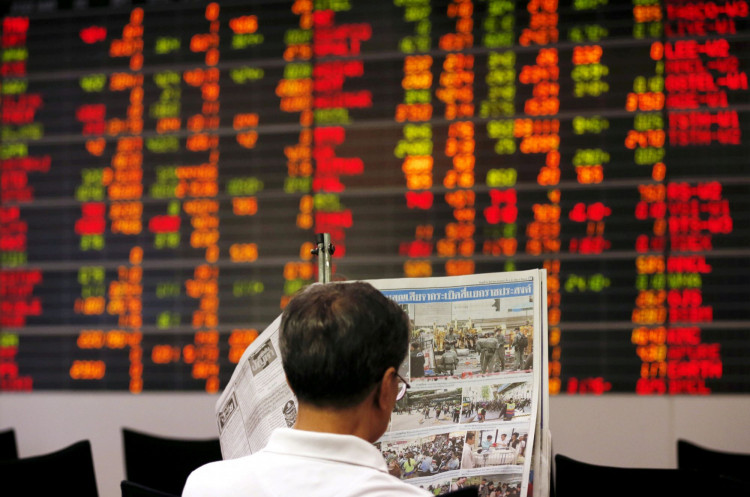This Friday, Asian stocks dropped with major indexes from Australia, Japan, and South Korea lost more than two percent each. The decreases happened overnight as the 10-year Treasury benchmark reached an all-time low at below 0.9 percent.
Japanese stocks suffered the most losses [LKN1] with the Nikkei 225 losing 2.72 percent and closed at only 20,749.75. The shares of index giant Softbank Group also declined by 6.07 percent. Similarly, the Topix index lost 2.92 percent and ended with 1,471.46 points.
The Japanese currency was labeled as a safe-haven stock. It traded at 105.93 per dollar after achieving a 108 low this week.
South Korea's Kos; I also lost 2.16 percent and closed with only 2,040.22 points. The Hang Seng index, on the other hand, fell by two percent on its final hour of trading.
Mainland Chinese stocks also suffered losses during the afternoon trade. The Shanghai composite decreased by 1.21 percent with 3,034.53 while the Shenzhen component lost 1.1 percent and ended at 11.582.82 points. The Shenzhen composite also shed 0.74 percent and closed with 1,915.17 points.
Similarly, Australian stocks also felt the adverse effects of the market. The S&P/AS 200 lost 2.81 percent and closed at only 6,216.20. Last January, the Australian retail turnover fell by 0.3 percent for every month on a seasonally adjusted basis.
According to the Australian Bureau of Statistics, the public health crisis in China has adversely affected aggregate retail trade estimates and would continue to do so in the coming months. However, it was explained that there had been no apparent impact of the public health crisis on the aggregate level data.
In total, the MSCI Asia index lost 2.13 percent. According to Mizuho Bank's Vishnu Varathan, two strains of infection has adversely disturbed the world economy. The first is the public health crisis, while the second is the falling values of shares of stocks.
Similarly, the travel industry also felt the adverse effects of these infections. Shares of airlines fell significantly, such as Australia's Qantas Airways lost 7.1 percent. Japan's ANA Holdings also lost 3.76 percent while South Korea's Korean Air Lines' stocks decreased by 5.58 percent. Lastly, Hong Kong-listed shares of China Eastern Airlines also shrunk by 4.08 percent.
The declines in the shares of stock for the airline companies were blamed on the travel restrictions imposed globally. Overnight, these shares plummeted by 13 percent as predicted by the International Air Transport Association. The forecast claimed that airlines could lose up to 113 billion in revenues by 2020.




